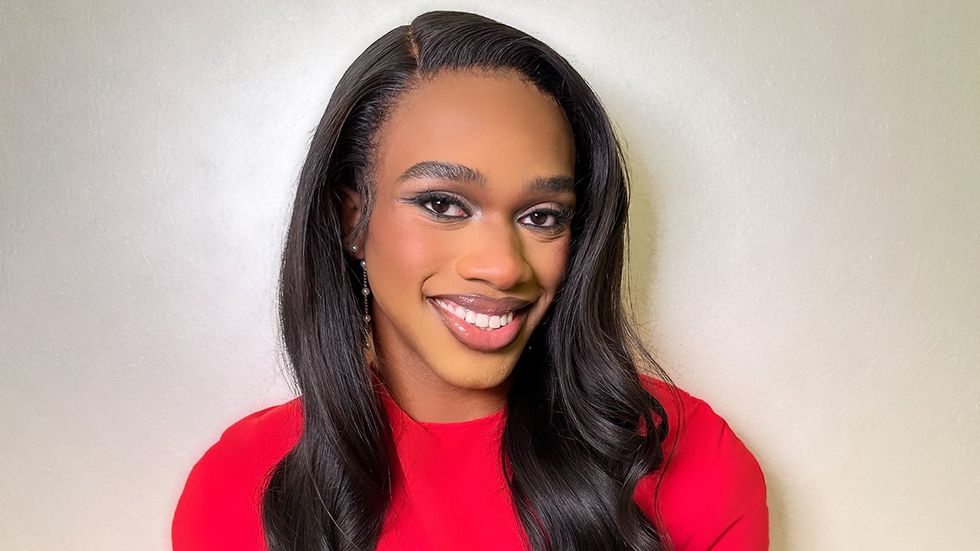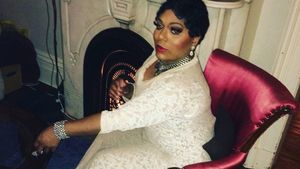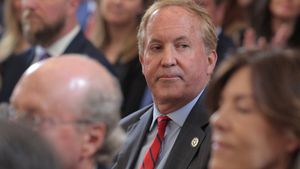To say there would be no @JaeGurley without TikTok is an understatement—it goes beyond the username. TikTok has instrumentally changed my life; I can’t imagine a world without it. Though some may interpret the sentiment as an addiction—a drug that must be banned—I ask readers (and a few congressmen) to slow down on their judgment and walk with me.
Before TikTok, social media increasingly seemed like a pay-to-play space filled with celebrities, models, and influencers. Not to say that it isn’t still like that now. But if you didn’t have money, a famous parent, or an early adopter, seeing the growth we’re seeing from creators on TikTok in just a few months would’ve taken years on other platforms, especially for creators from marginalized communities.
When Covid devastated the world in 2020, my life fell apart, and TikTok helped put it back together. I was sent home from NYU, my summer theater internships evaporated, and with graduation around the corner (and student loan repayment behind it), I had no idea what I would do to face pending unemployment. TikTok was not only a chance to escape from these worries but also a chance to find a community that helped me find the woman I knew I was all along.
At the time, I was a closeted gay man who was deathly afraid of losing the one family relationship that mattered to me - my mother. My community on TikTok encouraged me to come out to my mother because they were ready to see more videos about my “bougie” lifestyle from the South. As I walked in my truth, I told my TikTok community I didn’t like people overemphasizing my he/him pronouns. To me, it felt like they would only do it when I would wear feminine clothing, making it feel like an attack, as to remind me of my assigned gender at birth. My community reminded me that I could do nothing to control people’s behaviors. Still, I could update my pronouns and establish a boundary of what I would and would not like to be referred to.
This led me to identify as non-binary for quite some time and helped me replace people from my life who no longer desired to understand. While on TikTok, I befriended so many Black trans women, and this is where I felt most at home. I shared with these women that my community on TikTok keeps referring to me as a “doll’, almost as if they’re waiting for me to transition. I told them how I was scared to transition because, firstly, everyone would see that journey online and pick me apart; secondly, because I’ve rarely felt the body dysmorphia that is often talked about regarding trans women. I didn’t have a problem with my body, and I was so afraid that transitioning would include surgically changing my body to something that would otherwise hurt or be uncomfortable. These newfound sisters quickly reminded me that, while gender-affirming surgery is often correlated with the trans experience, it’s not the sole way to exist as a trans woman.
A trans woman’s ascension to womanhood does not start on the operating table but within her heart.
These women made me feel strong enough to take the leap of faith I’d wanted for so long. It’s been three months since I began my transition journey. In many ways, I’m thankful to TikTok for the happiest months of my life. Without the platform, I might not have gotten in touch with these ladies. I would have regressed more in my transition journey today, searching for a community that accepts me in a social landscape that neglects me.
Queer spaces, like ballrooms and drag shows, are increasingly available and accessible in cities across the country. But if you grew up like me in a sheltered, obedient, strict Southern Christian household, then it might take a lot more than a flyer attached to a streetlamp to pull you out of your shell. TikTok was my bridge to finding my truth because it connected me to people going through similar circumstances.
Through TikTok, I had the pleasure of attending a Black trans liberation community meeting. Once again, I was awestruck with how powerful this platform has created — welcomed — spaces for marginalized voices to be seen, heard, and respected. In the current climate, thinking about what might happen if the app no longer existed in the U.S., I wonder what impact it would have on young queer folk growing up afraid in red states, individuals who have found community at the tip of their hands being ripped away from them. I shudder at the notion of TikTok’s ban, competitors trying to fill in the gap, or, worse, being bought by the likes of Meta or YouTube. Seeing how these competitors have championed diverse voices while creating content restrictions without informing their users and creators is always interesting, with questionable suppression of marginalized voices while amplifying others - for a price.
Though my transition journey is far from over, I know there will be a TikTok-shaped hole forever in my heart the day the app is restricted. I hope others find a similar community wherever their social media journey goes.
Jae Gurley is a content creator based in New York. Like and follow her on social media @jaegurley.
Have an inspiring personal story to tell? Want to share an opinion on an issue? Learn more by visiting pride.com/submit.






























































































































